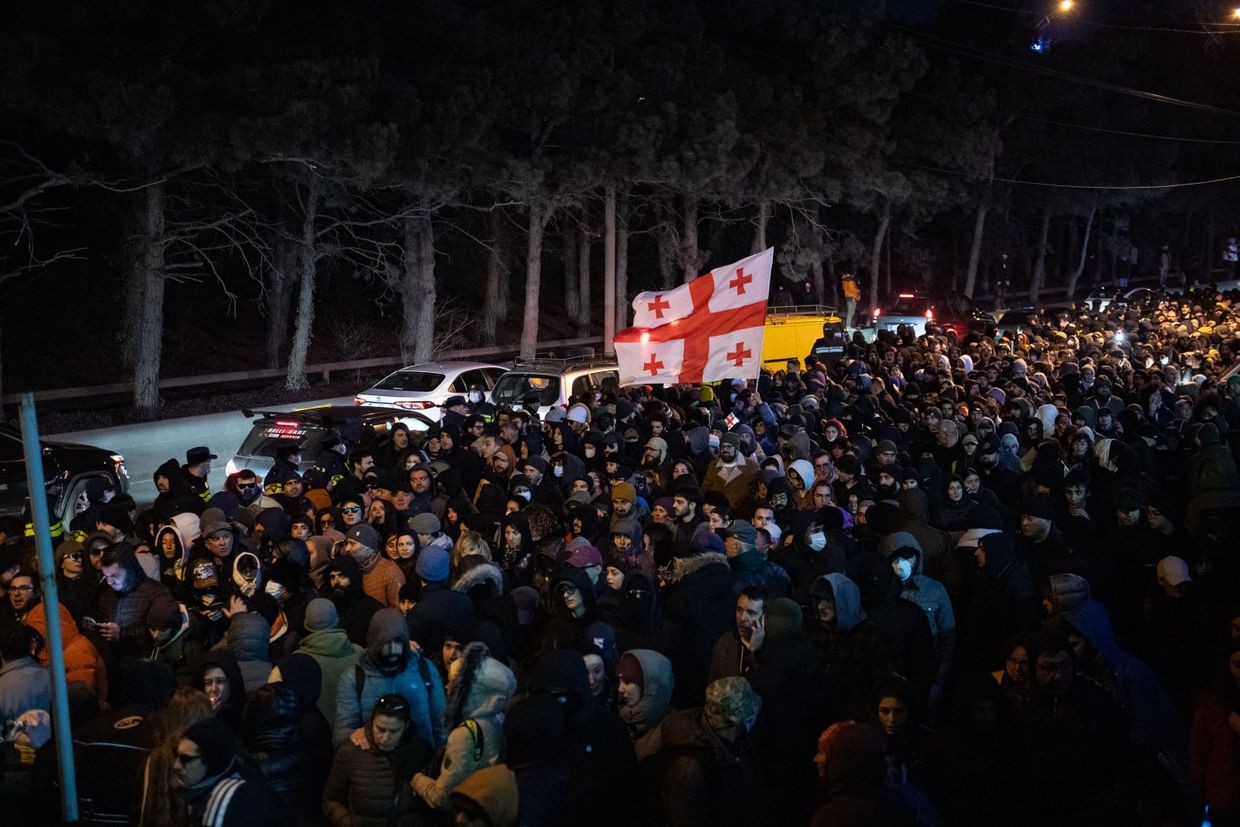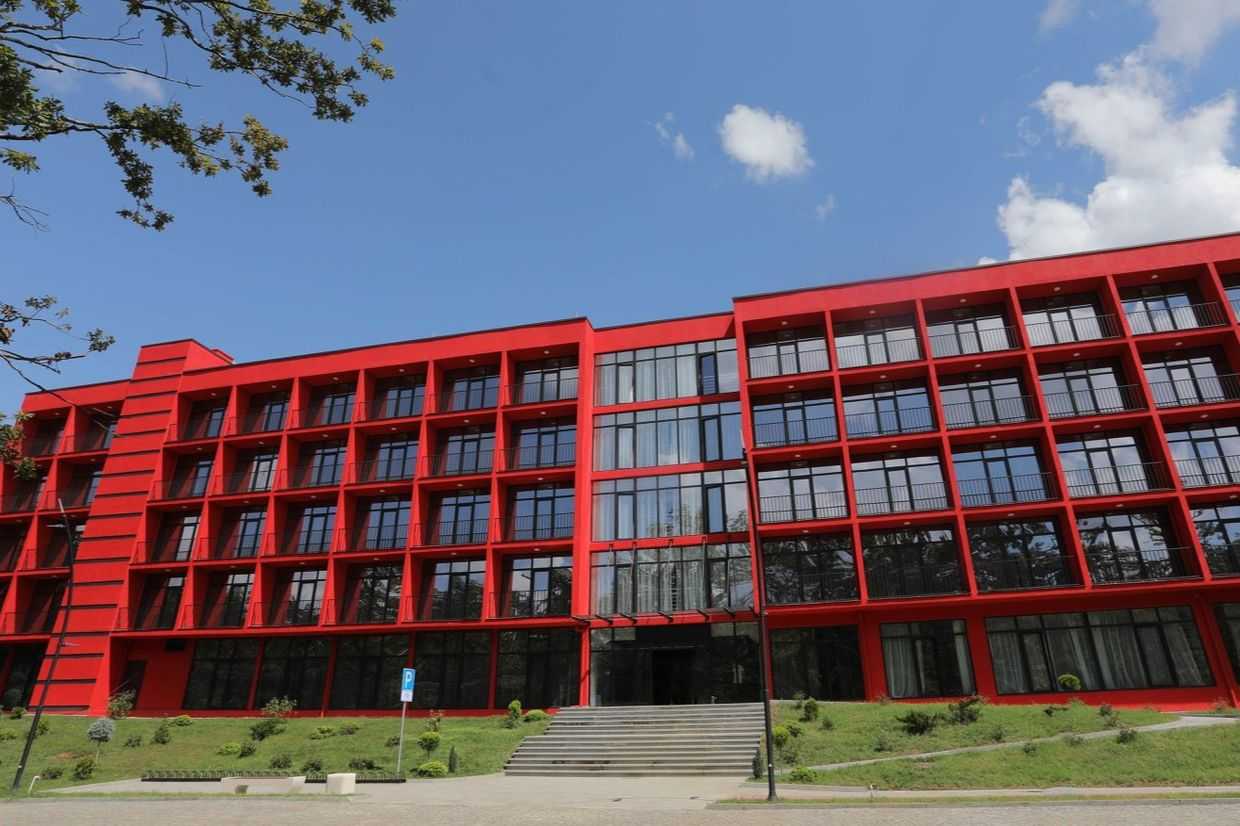
According to a study by the Institute of Social Studies and Analysis (ISSA), a majority of Georgians support the ongoing protests and blame the ruling Georgian Dream party for the political crisis. The same study showed that an overwhelming majority supports the country’s integration into NATO and the EU, although more than half also said they would back neutrality.
According to the study, 82% of respondents believed that there was a political crisis in Georgia, and nearly 78% placed the primary responsibility for it on Georgian Dream.
The top indicators of the crisis identified in the survey were a one-party parliament (38.6%) and mass protests (33.7%), as well as ‘physical retaliation against protesters and illegal arrests’ (24.7%).
In the same survey, over 67% of respondents disapproved of Georgian Dream’s decision to suspend the EU membership bid, while about 25% found the decision acceptable. Nearly 60% of respondents expressed some level of loyalty to the protests sparked by that move, with 45% of them showing strong support.
Only 7% of respondents said they were confident that Georgian Dream is committed to integration with the West (Europe, the US), and the EU and NATO. The majority (up to 55%) believed that the ruling party’s foreign policy served the interests of Russia and countries aligned with Russia (such as China, Iran, and others).
Additionally, 30.1% thought that Georgian Dream pursues a balanced foreign policy, not specifically aligning with the interests of any one country.
Like many other surveys, ISSA’s poll also showed that a large majority supports Georgia’s integration into NATO (over 74%) and the EU (over 86%). Despite this, more than half of the respondents (up to 53%) also said they favour the idea that Georgia should not join any political or military international structures and should maintain neutrality.
The institute also asked respondents about Georgian Dream’s theories on the anti-Georgian influence spread by the ‘deep state’ and the ‘Global War Party’. According to the survey, the majority (54.2%) said they find these statements unconvincing, while a quarter (25.3%) found it difficult to express an opinion on the credibility of these claims.
2024 Parliamentary elections
The study also included questions about the 26 October elections and the popularity of political parties. Over 51% of respondents said they voted for the opposition, while 32% said they voted for Georgian Dream.
Among the factors that influenced respondents in their decision to support a specific political party, the most dominant were the need for a change of government (36%) and overcoming poverty/solving economic problems (36.3%). Also in the top five were maintaining the country’s pro-Western orientation (25.8%) and avoiding the threat of war with Russia (25.5%).
‘Protecting family values and other national values’ and ‘protection from LGBT propaganda’, both frequently mentioned by the ruling party before the elections, received 13.7% and 5.5%, respectively.
When asked about the fairness of the elections, approximately 43% of respondents believed the elections were unfair, while 16% thought they were equally fair and unfair (50/50).
Nearly 48% of respondents considered Georgian Dream’s presence in government to be illegal/illegitimate, while 39.2% believed it was legal/legitimate.
The majority, 62%, agreed with one of the main demands of the current protests, which is the scheduling of new parliamentary elections. In comparison, a significantly larger group, 76.3%, supported another key demand of the protest movement, the release of those detained during the demonstrations.
In the event of new parliamentary elections, a large majority (around 80%) would be highly willing to participate.
ISSA also asked citizens whom they would vote for if new elections were held now. According to the allocation, 31.5% would vote for Georgian Dream, 18% for the Coalition for Change, 14.9% for the United National Movement, 11% for Strong Georgia, and 9.5% for Gakharia for Georgia. When the share of support for those four opposition parties are tallied, they equal 53.4%, just shy of the total claimed by Georgian Dream in the October elections.
Up to 55% of respondents did not share the view that if Georgian Dream does not remain in power, the risk of Georgia getting involved in a war with Russia would increase. However, 35.5% agreed with this view, though only 15.3% were fully convinced.
Attitudes towards political actors and others
The study also addressed another issue in the context of the ongoing political processes: who is the legitimate president of Georgia — 40.1% considered Salome Zourabichvili to be the legitimate president while 37.7% viewed Mikheil Kavelashvili as such. Another 15.9% said they did consider either of them to be the legitimate president.
The majority, 57.2%, gave a negative evaluation of Kavelashvili’s election as president.
When evaluating the performance of various actors in the last few months, Zourabichvili ranks highest with 49%. The activities of Georgian Dream after the elections were negatively evaluated by more than half of respondents (53.2%).
The share of those positively evaluating the activities of NGOs (up to 36%) exceeded those negatively evaluating them (around 30%). The evaluation of opposition political parties’ performance after the elections showed that those who negatively assessed their activities (up to 38%) outnumber those who positively assess them (33.2%).
Regarding sanctions, up to 52% of respondents considered the sanctions imposed by the US on Georgian Dream’s founder and honorary chair Bidzina Ivanishvili to be justified, and nearly the same percentage considered the sanctions against high-ranking officials of the Ministry of Internal Affairs to be justified.
ISSA conducted this public opinion poll nationwide in January, interviewing 2,000 respondents using face-to-face interviews. Respondents were selected randomly from households. The results of the survey provide a margin of error of ±2.2% for the entire sample, with a 95% confidence level.









